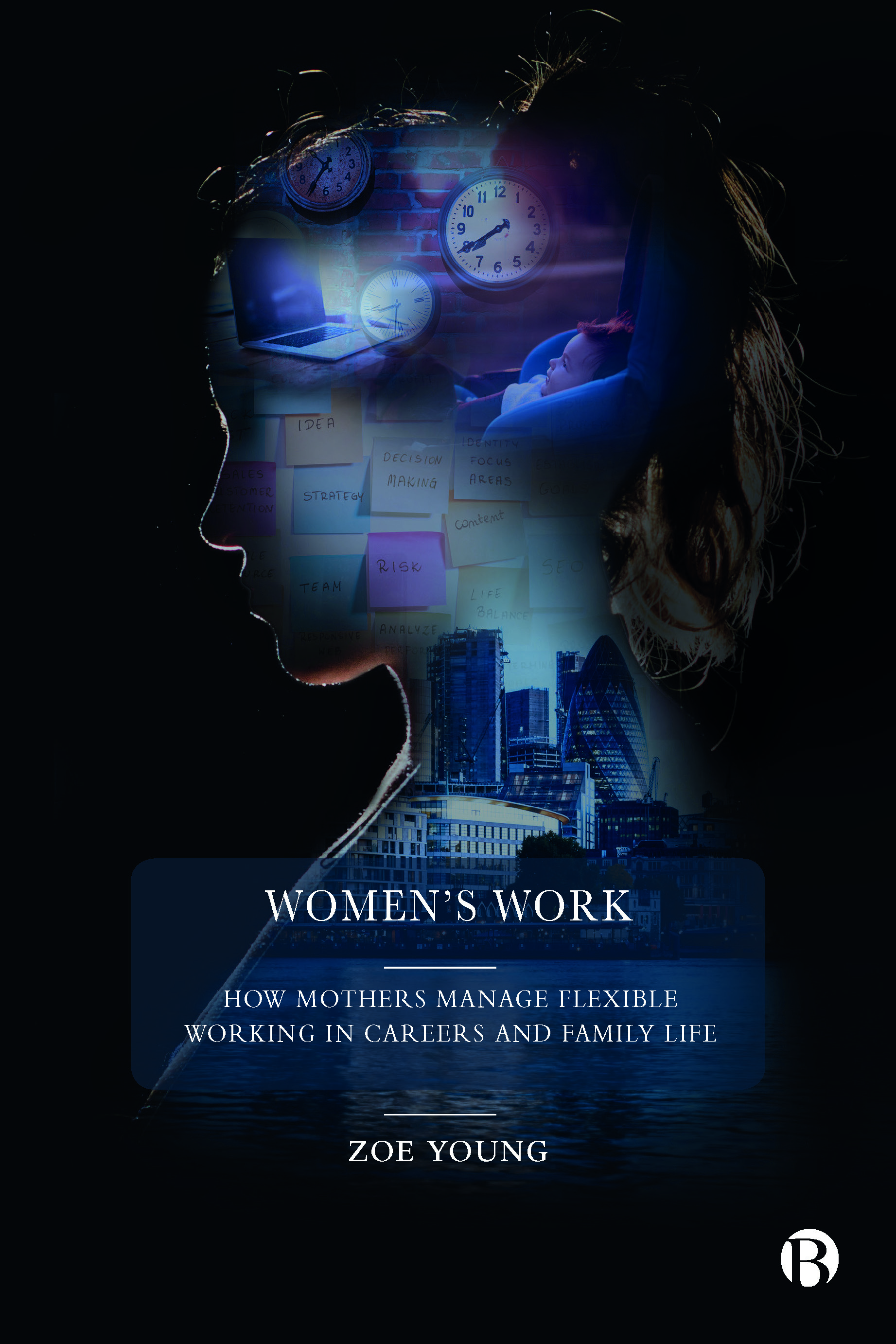Sep 24, 2018
Why ‘leaning in’ is not enough
Flexible work arrangements can transform how professional women combine a fulfilling career with motherhood. But the options are limited, particularly at the higher levels. This needs to change for the benefit of women, families and organisations.
A new book by Dr Zoe Young (Half the Sky), is the first to go inside women’s work and family lives in a year of working flexibly. Women’s Work: How mothers manage flexible working in careers and family life, is published by Bristol University Press on 12 September.
Young’s pioneering research at the University of Sussex followed a year in the lives of 30 mothers of infants through to teenagers, working in a range of UK industries – law, banking and finance, consulting, technology, health, and public service.
All 30 women were managers or held professional jobs at that pivotal level in large organisations when men start to outnumber women, and women disappear from the pipeline to the top jobs.
Drawing on over 100 hours of interviews, Young reveals the complex hidden lives of working women and the lengths they go to so they can maintain a career alongside motherhood.
Across 30 deeply personal stories, Young identified three common themes:
• A difficult conversation: asking for flexibility remains one of the hardest workplace conversations to have. It still feels career-limiting for mothers, even in the most supportive organisations
• Flexibility fatigue: making flexibility work in practice is tough. Women are acutely aware of motherhood penalties and actively craft their jobs, carve out time for their families, and try to keep their careers on track. Managing this triple life-load is a fatiguing experience that feels unsustainable
• Who does what at home matters: mothers feel terrific pressure to successfully balance work and family life on their own. Many are not living the egalitarian ideals for shared parenting they once held. The future of work for mothers could look quite different if fathers too were proactively encouraged to share care and adopt flexible working practices.
Young concludes that professional women are ‘leaning in’ as far as they can. It is time for the system to adapt and meet them. She proposes that it would be better for women and their organisations if employers took on the role of designing flexible jobs and combating the stigma adjusting working hours can cause rather than leaving it to the employee. By removing the onus on the personal, it lifts the burden from the employee and helps the organisation make the most of its skilled workforce:
“We need to demand more from our employers I think. It is not enough for them just to say yes or no to flexibility, managing how it is done is just as important” Olivia, management consultant, 90% contract, works from home on Fridays (occasionally), 2 children aged 2 and 4
Young proposes five actions for policy makers, employers and within the family which are essential to remove the barriers and fulfil the potential of flexible work arrangements for gender equality in careers and family life:
F L I P T H E D E F A U L T
• Employers ask instead 'why can't?' a job be done flexibly? ... and then do something about the answers
E X P E R I M E N T, P I L O T , T R I A L
• Organisations should test new flexibilities from the current 300+ possible ways to work, to discover what works for employer and employee
J O B D E S I G N C A P A B I L I T Y
• Employers should develop manager capability in job design for flexibility, and track the impact of better managed flexibility on productivity and performance
F L E X I B L E C A R E E R P A T H S
• Only 1 in 10 job ads mention flex. Promotion ladders need to lead to jobs at higher levels that are flexible from day one
S H A R I N G T H E C A R I N G
• Encourage men to share care and adopt flexible working practices
"I've been juggling paid work and caring for children for over 25 years, so this book speaks to me in a big way. What I've learned is that there is no single way to do it but there are some gems of wisdom which we can pass on and this is what Women's Work does so effectively." Sam Smethers, Chief Executive of Fawcett Society







